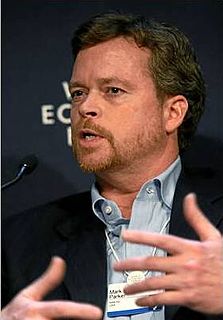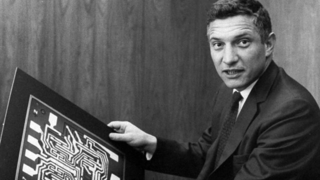A Quote by Eric Ries
All innovation begins with vision. It’s what happens next that is critical.
Related Quotes
What usually happens is that when I'm nearing the end of one novel a vague idea about what I want to do next begins to present itself to me in terms of theme. And I would say over about the next six to eight months, usually as I'm out power walking in the morning, or when I'm cooking at night, or when I'm driving in the car, the people who might embody those themes take on a sharper and sharper focus. And there comes this sort of critical mass moment when they actually start to do things in my head.
Innovation is not a big breakthrough invention every time. Innovation is a constant thing. But if you don't have an innovative company [team], coming to work everyday to find a better way, you don't have a company[team]. You're getting ready to die on the vine. You're always looking for the next innovation, the next niche, the next product improvement, the next service improvement. But always trying to get better.
Designers are by nature more inquisitive, more connected. They dig a little deeper in terms of insights. They turn those insights into innovation. That connection to the consumer is absolutely critical in driving innovation. It’s critical that design isn’t subjugated to the back room as a short order cook for marketing or for merchandising or sales. It has to be up front.
Leapfrog innovation - consistent, constant, ridiculous leapfrog innovation - only happens within a dictatorship. Any time you try to do something really innovative, most people aren't going to understand it until after they experience it. So when you're developing in innovation, you have to be a dictator.
You have sole ownership of your vision. And the Universe will give you what you want within your vision. What happens with most people is that they muddy their vision with “reality”. Their vision becomes full of not only what they want but what everybody else thinks about what they want, too. Your work is to clarify and purify your vision so that the vibration that you are offering can then be answered.
Language development, for instance, has a critical period that begins in infancy and ends between eight years and puberty. After this critical period closes, a person’s ability to learn a second language without an accent is limited. In fact, second languages learned after the critical period are not processed in the same part of the brain as is the native tongue.



































